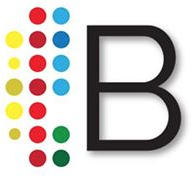There’s nothing like an impending election to make our government look bad, but on occasion they get things right, like data production. Point in case the NAICS Code, which stands for North American Industry Classification Scheme. In business research NAICS Codes are a handy-dandy tool for 1) isolating industry news/reports, and 2) creating company lists based on, as the title implies, how a business is classified.
You can include the NAICS Code as piece of limiting criteria in some of our favorite databases like Business Source Complete, and ReferenceUSA. In the first screenshot shown below, the NAICS option comes up in a dropdown list in BSC. 
Also because NAICS falls under the umbrella of all-things-Census, you’ll also see it featured on the Industry Statistics Sampler website. Just choose your code of interest to see downloadable report offerings for how that industry is faring.
 How do you get your hands on the code you need? Visit the NAICS homepage and use the search box above the “2007 NAICS Search” button to enter a word, e.g. “sunglasses,” and you’ll receive a list of codes related to your term. The image on the right shows the extent to which you can drill down using the NAICS website. Click on a code to see even more information about how it's used to make sure you’re on the right track.
How do you get your hands on the code you need? Visit the NAICS homepage and use the search box above the “2007 NAICS Search” button to enter a word, e.g. “sunglasses,” and you’ll receive a list of codes related to your term. The image on the right shows the extent to which you can drill down using the NAICS website. Click on a code to see even more information about how it's used to make sure you’re on the right track.
One important note is that some databases and business tools might still reference SIC (Standard Industry Classification) Codes, which were last updated in 1987, and which NAICS replaced in 1997 (FAQ). For the fine points of difference between SIC and NAICS, visit its History page. On the off-chance you need to translate between these codes, visit the Concordances page.






